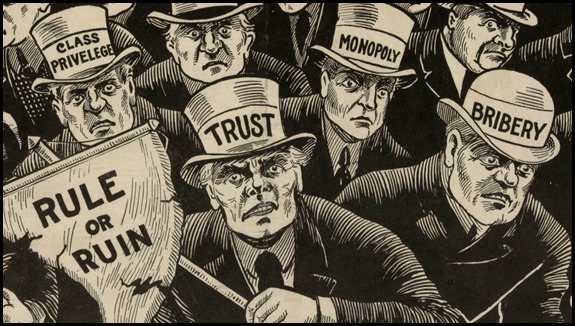It’s the 70th anniversary of Orwell’s 1984.
“There will be no curiosity, no enjoyment of the process of life. All competing pleasures will be destroyed. But always— do not forget this, Winston— always there will be the intoxication of power, constantly increasing and constantly growing subtler. Always, at every moment, there will be the thrill of victory, the sensation of trampling on an enemy who is helpless.
If you want a picture of the future, imagine a boot stamping on a human face— forever. ”
― George Orwell, 1984 – Part 3, Chapter 4
© Copyright 2019 Yaacov Apelbaum, All Rights Reserved.



The present ‘climate’ in so many of our colleges and universities makes me sad and fills me with fear for future generations. The freedom the feminists and left clamored for since the Sixties and subsequent decades has destroyed the two parent family, the anchor that formed the basis for positive social change and a steady support for stepping out of poverty.
Everything we read now about the conduct of college administrations and professors could be viewed and confirms the socialists and communists takeover of education, especially these few words I picked out from above except when examined, so many teaching our youth have already become power-mad, leftist Nazis:
“”There will be no curiosity, no enjoyment of the process of life. All competing pleasures will be destroyed. But always— do not forget this, Winston— always there will be the intoxication of power, constantly increasing and constantly growing subtler.””
This is strong tea.
And re your post on Isaiah. I am still working on it but I am very, very grateful that you see fit to share this and your other thoughts. Have you considered applying these approaches to works from the payyetan tradition. Random question, could one attune themselves to additonal ‘frequencies’ in these and other texts?
Fifth row, second column.
Hi Michael,
Thank you for your comment. I’m not sure what do you mean by applying the “approaches to work from the Payyetan tradition”.
By piyyutim are you referring to the medieval form of liturgy or the biblical form such as the Song of the Sea? And by structure do you mean devices?
In general, the Hebrew Bible uses layering techniques known as PaRDeS, so you can read it on multiple levels.
The text may include elements such as:
– Peshat (פְּשָׁט) – “surface” (“straight”) or the literal (direct) meaning of the text.
– Remez (רֶמֶז) – “hints” or the deep (allegoric: hidden or symbolic) meaning beyond just the literal sense of the words.
– Drash (דְּרַשׁ) – from Hebrew darash: “inquire” (“seek”) – the comparative meaning, as given through similar occurrences in other passages.
– Sod (סוֹד) – “secret” (“mystery”) or the esoteric/mystical meaning, as given through inspiration or revelation.
So for example, reading Genesis 1:2-4, “And G-d saw the light, that it was good; and God divided the light from the darkness. And God called the light Day, and the darkness called Night. And there was evening and there was morning, one day. ” If we apply the principals of the PaRDeS to this passage, we get the following:
Peshat: G-d created the physical concept of light (i.e. photons traveling through space). In this context, darkness is understood as a lack of illumination or an absence of visible light.
Remez: Light is a veiled reference to good and darkness to evil. So, in this vein, G-d saw that the wicked were unworthy of using it (the light); he, therefore, set it apart (ויבדל), reserving it for the righteous in the world to come.
Drash: Light is written five times in the passage, this corresponds to the five books of Torah. ‘G-d said, “Let there be light” – this corresponds to the book of Genesis ‘in the beginning’, in which G-d created the universe. ‘and there was light’ – this corresponds to the book of Exodus ‘and these are the names’, in which Israel came from darkness to light. ‘G-d saw that the light was good’ corresponds to the book of Leviticus, ‘and He called’ which contains the law and it’s illuminaiton. ‘And G-d separated the light from the darkness’ corresponds to the book of Numbers, ‘in a desert’ which makes a distinction between those who left Egypt but died in the desert and those who after 40 years entered into the land of Canaan. ‘And God called the light Day’ corresponds to the book of Deuteronomy of the Torah, which not only a recaps the four earlier books, but contains Moses’s dying instructions to Israel to chose good over evil.
Sod: And G-d called the light day – It is suggested that the light was prepared for the righteous for the future world, as it says “and the light of the moon will be like the light of the sun, and the light of the sun will be seven times like the light of the seven days” (Isaiah 30:26).
Said Rabbi Tanchuma: This is the reason: “I form the light, and create darkness; I make peace, and create evil” (Isaiah 45:7). ‘And G-d called the light day’ – said Rabbi Eleazar: G-d never associates his name with evil, only with goodness: that is the reason why it is not written ‘and G-d called the light day; and the darkness G-d called night’; rather, [it is written] ‘and the darkness, called night.’
Thank you so much. By payyetan, I was referring to the poets, instead of the liturgical (sung) poetry, piyyutim. It occured to me that a similar practice of layering and compressing info/messages could be (have been) carried out in works like Dror Yikra or Adon Olam. And the communication could have been custom-fit to the moment and circumstances. Idle thoughts, as ever, very grateful for all this.
Hi Michael,
I haven’t personally looked into this but you could be right. The Payyetanim did use a number of methods like acrostics, rhyming, and rhythmic pattern meters, so, it’s possible that there is some additional content in the text.
But whatever you are going to find in piyyutim like Adon Olam or Yigdal is much different than the Torah (the first five books). The reason for this is that in the Torah, in addition to the regular literary devices, there are also a lot of ‘housekeeping/sanitization’ functions like checksums that are built into the text. This was done in order to prevent a scribal error, data rot, or deliberate alterations.